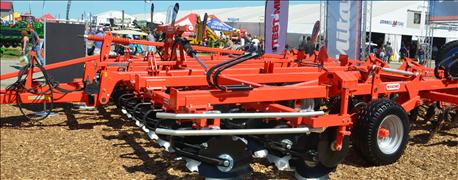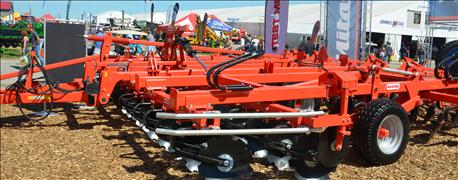
When you talk to your banker or loan officer about an equipment purchase yet this fall or your operating loan for 2017, it may not be business as usual. Jason Henderson, director of Purdue University Extension, says his staff will be helping farmers prepare to answer more questions when they visit their ag lender this time.
“Part of the reason they will likely ask more questions is that they will have bank regulators asking them questions,” Henderson explains. He has a strong background in ag economics and financial management.

CAN YOU JUSTIFY THE PURCHASE? Expect bankers to ask tougher questions in the tight economic climate. Be ready to justify purchases, even if you strongly feel they will help your farm.
“Lenders don’t make money when they loan out money,” Henderson says. “They make money when the loan is repaid.” Expect them to look more carefully for evidence that you can repay new loans.
Here are four key areas where bankers and lenders will likely ask more questions than usual when you visit to roll over an existing loan, ask for an operating loan for 2017 or ask for a new loan to purchase equipment.
1. How are you managing risk in your operation?
What are you doing about cash rents? Will you be able to lower at least some of your cash rent contracts? What are you doing on the input side to cut costs for 2017? These are just some of the questions your lender may expect you to be able to answer, Henderson says.
2. What are you doing to make sure you have adequate revenue in 2017?
Everyone should have a marketing plan for the products they produce. Expect your lender to ask about your marketing plan — and understand he or she is expecting you to explain it in detail. Your lender will also likely want to know what you intend to do about crop insurance in terms of risk management and protecting revenue, Henderson notes.
3. What are you looking at in terms of potential investments in equipment or other items?
Just saying "I need it" won’t likely cut it this time around, he believes. You will likely need to justify how an investment will help generate more revenue. Plus, be ready to explain how you are going to pay for it during the upcoming year.
4. What lifestyle investments do you intend to make?
Even if your lender hasn’t gotten personal and asked about family living expenses in the past, this might be the year when he or she does. Withdrawals from the business for family living or major purchases for family use, such as cars or other high-dollar items, could affect the farm operation, Henderson says.
“How much money are you going to be taking out of the farm operating budget to cover family investments and living expenses?” he asks. “I would expect bankers to be looking at this area more closely, even if they haven’t done so in the past."
About the Author(s)
You May Also Like




